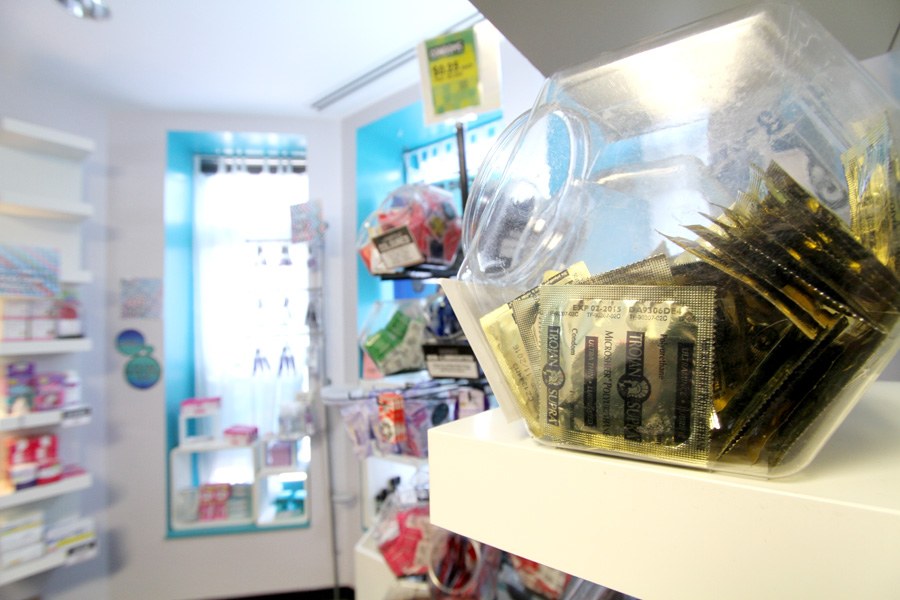The Shag Shop, a sexual health boutique and resource that was originally located in the Brown Student Services Building, has been temporarily closed at the beginning of this year due to the construction of an accessible ramp for the First People’s House next door.
The closure of this physical space, which occurred with little notice to students before the start of the year, leaves a critical hole in sexual health resources on campus. In the interim, the role of the store will be served by an online portal and a roving set of ‘pop up’ locations around campus, selling a smaller selection of the same sexual health products. A major reason for the closure was that, despite attempts to place the store in a new physical space, there was no area found that met the desired balance of accessibility and privacy— a necessity so that students do not feel insecure bringing their isssues to the space.
The loss of the Shag Shop might not seem to be much of a problem at first, as most of the items it sells are available at local drugstores and convenience stores. However, a primary element that made it a valuable on-campus resource was not just the products it sold, but the non-judgmental environment it provided for students who needed an avenue to comfortably discuss their sexual health. The volunteers at the Shag Shop were all members of Healthy McGill’s Peer Health Education staff—trained members of the university’s student health initiative. As such, they were not only able to serve as a source of reliable information, but also able to connect to students on a closer level than ordinary health professionals. Bringing problems to a peer would be a less intimidating expereince than taking them to a more distant, aloof doctor or clinician. In addition, the experience of purchasing certain contraceptive and sexual health products at the drugstore is fraught with the possibility of unhelpful or judgmental staff. As one of the only initiatives on sexual health and safety directly managed by the university, the Shag Shop and its closure represents an abdication of responsibility on McGill’s part to provide heath services to students.
Additionally, there seems to have been a lack of consideration for what will actually fill the vacuum left by the closure of the physical location. The online component of the store has not been launched yet, and isn’t projected to until late September at the earliest, even though we are already past frosh and into the school year, which presents an acute challenge when it comes to the provision of sexual health services. While the closing of the store and the plans for its replacement seem to have been undertaken with good faith, we question the message the current situation sends about the university’s commitment to furthering sexual health. There is no way McGill would close the health clinic or dental office before the beginning of the school year without a clear solution ready to go when students return in the Fall, and sexual health resources should be provided just as readily.
The current situation with the Shag Shop is untenable, and while there is a broader conversation to be had about sexual health on our campus, the least that could happen right now is to finish the website and start an outreach campaign to make sure students are well-informed of its existence. Furthermore, as we prepare for the return of a physical location for the store, we should engage in a discussion among campus stakeholders about what a reimagined location should bring to the table in terms of amenities and resources. The commitment to sexual health is one that the university should maintain, yet has not seemed to do throughout this episode.









